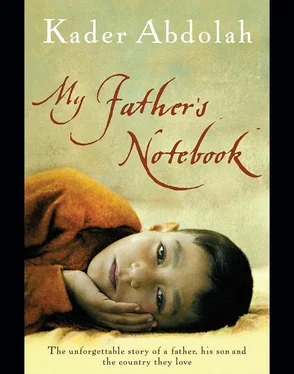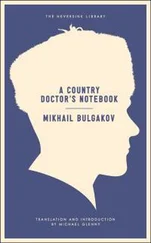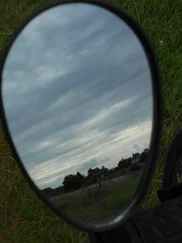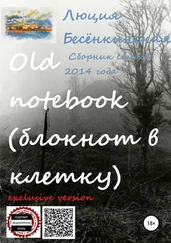I kept going, but reality was stronger than I was. Every time I went out of the door, I was hoping, deep in my heart, that I’d never have to return. I didn’t even care if I had a car accident and ended up in the hospital.
I did my best, though. I cranked out the news sheets and delivered them on schedule every time. Then one night I ground to a halt, just like the stencil machine. I just couldn’t take it any more.
• • •
I explained the situation to my contact person. He didn’t understand. I had the feeling that he was looking at me with contempt. He must have thought I was trying to save my own skin, now that things had got dangerous.
I told him that our resistance was ineffective, that we should accept the fact that the mullahs had won and save our strength for later. As much as I believed in the party and was prepared to sacrifice myself, I had to conclude that our current methods weren’t working.
He said he would pass my advice on to the central committee.
A week later I heard what I expected to hear: the committee didn’t agree. If I wanted to quit, my name would be put on the non-active list and I would have to sever all ties with the party.
Sever all ties? That wasn’t what I wanted. I couldn’t opt for a safe life while my comrades continued to battle the mullahs. How could I just sit there, comfortably watching TV with my wife and child, while an imam announced that “The police have arrested the last of God’s enemies. A stencil machine was found in their hiding place.”
It was too late for me to lead an ordinary, bourgeois life. My comrades were right: we had to say no to the mullahs who had brought the Iranian people to their knees. We had to say no, to shout no! Even if no one heard us now, because sooner or later we would be heard.
Now that I had made my opinion known to the party, I felt better. I went back to work.
Six weeks later, I drove to the usual place to deliver the news sheets to my contact person, but he didn’t turn up. He was supposed to be waiting for me by the phone box in the loading zone behind the Tehran bazaar.
Normally, when I saw him, I parked my car in the lorry-loading area, got out and opened the boot, as if I were an ordinary businessman. My contact person then wheeled a cart over to the car and took the boxes from me.
This time, however, he wasn’t there. I drove around the car park for a second time, just to make sure. There was still no sign of him.
Yesterday afternoon, everything had been OK. The word salaam had been written on the fence. If something had happened, it must have happened after that.
There was no reason to panic. My instructions were to come back in an hour and try again. If he failed to turn up this time, something was definitely wrong.
I parked the car and went into a teahouse. Time seemed to stand still, so I tried walking around a nearby park. After fifteen minutes, I’d had enough, so I joined the crowds in the bazaar and did my best to work up an enthusiasm for the jewellery. This didn’t make the minute hand on my watch move any faster, so I sat down in another teahouse, drank a few more glasses of tea and skimmed through the old newspapers on the table.
At last an hour was up. I left the teahouse, got in my car, drove past the phone box and looked to see if he was there. No, still no one. I drove a couple of hundred yards farther, turned around and checked again. No, not a soul.
My instructions were to leave the vicinity immediately and go to an emergency meeting place. If my contact person hadn’t been arrested, I’d find him there.
I drove to a café outside of town. If all was well, he’d be sitting by the window, and when he saw me, he’d come out and get in the car.
I drove slowly past the café. There was no one at the window. I turned around and drove past again.
Was I scared? Not then. I had a strange, mixed-up feeling. Like a person who’d shouldered a heavy burden for a long time and suddenly had the weight lifted. Even though it was gone, he still couldn’t stand up straight.
I felt anxious, but fear hadn’t gained the upper hand. Something had definitely gone wrong: either the police were on his tail or he’d been arrested.
What was the next step?
I drove away quickly, because when the police arrested someone, they tortured him until he divulged the names of his contacts.
There was one last ray of hope. I had to wait until the next morning, then make my way to one final meeting with a woman I didn’t know, who would re-establish my contacts with the party.
For security reasons, I couldn’t go home that night. I left the car in a car park and spent the night in a hotel. If this last contact person failed to show, I would have reached the end of the road.
The designated place was a nursery school in the middle of Tehran. At eleven-thirty in the morning, a woman was supposed to be sitting in a car out front reading a newspaper. If I saw her car, I was to park a few streets away, walk back to the school and wait along with the parents until the doors opened and they went in to collect their children. When everyone had left, I was supposed to ask, “Are you waiting for someone, too?”
If she answered, “Yes, I’m waiting for someone, too,” I was supposed to get in the car and she would drive off.
I drove past the school. A few cars were parked outside. There was even a woman at the wheel of a car, though she wasn’t reading a newspaper. I parked and walked back to the group of parents waiting on the sidewalk. I checked out the woman in the car. She looked more like a mother than a political activist. It’s not her, I decided. Or was it? Maybe she wouldn’t take out her newspaper until everyone had left. The school doors opened and the parents streamed in. To my dismay, she got out of the car and went in, too. Five minutes later, all the cars had driven away.
Five minutes after that, the janitor locked the heavy iron gates.
I didn’t want to believe it, but I knew we were finished. The clerics had caught up with us.
I had reached the end of the road.
From then on I wasn’t sure what I was supposed to do.
Had I walked into a trap? Were the secret police watching me this very moment? Were they following me so they could nab the others?
In any case, I had to move fast. The most important thing was to get rid of the boxes in the boot as quickly as possible. Then I’d think about the next move.
I jumped in my car and drove off. Oddly enough, though the police could have been on my tail, I was suddenly less scared. My first priority would be to dump the boxes. After that, I’d have to get rid of the stencil machine in my flat.
I looked in the rear-view mirror to see if I was being followed, then drove down a couple of streets and doubled back so I could check the cars behind me. No one seemed to be following me. I got on the motorway, drove as fast as I could, got off a few exits later and waited by the side of the road. Not a car in sight. It would be safe to get rid of the news sheets. The only question was how. Should I toss them in a rubbish bin? I couldn’t bring myself to do it. A rubbish bin was no place for something I’d risked my life to produce.
I saw a bridge. A river would be a good place for my news sheets. I drove under the bridge and waited until there weren’t any cars. Then I opened the boot, took out the boxes and threw them into the river.
I stared at them as the current carried them downstream. Where did the river go? It flowed into a large salt lake near the holy city of Qom.
There was no time to waste. I drove straight home. If the police had arrested my contact person yesterday, I had precious little time. Only the greatest of heroes could hold out for more than a couple of days in the torture chambers of the mullahs. A few of my comrades had chosen to die rather than name names.
Читать дальше












